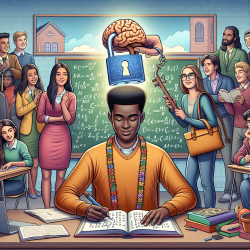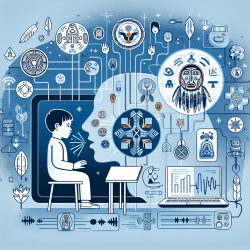In the field of speech-language pathology, creating effective interventions for children with unique needs is paramount. The recent study, "Understanding the Academic Success of Academically Talented College Students with Autism Spectrum Disorders," provides valuable insights into supporting twice-exceptional (2e) students—those who are both academically talented and diagnosed with Autism Spectrum Disorder (ASD). By examining the experiences of these students, practitioners can enhance their strategies to foster better outcomes.
Key Findings from the Study
The study utilized semi-structured interviews with 40 students identified as academically talented and diagnosed with ASD. The findings highlighted several critical factors that contributed to their academic success:
- Advanced Content and Enrichment Opportunities: The majority of participants engaged in honors classes, enrichment programs, and extracurricular activities that aligned with their interests. These opportunities were instrumental in keeping them motivated and engaged.
- Support Systems: Participants frequently cited the importance of supportive relationships with parents, teachers, and peers. These support systems provided emotional and academic assistance, enabling students to navigate challenges effectively.
- Understanding Strengths and Weaknesses: Many students had a clear understanding of their academic strengths and weaknesses, which helped them develop effective study strategies and seek appropriate support when needed.
Implications for Practitioners
Based on these findings, practitioners can adopt several strategies to better support 2e students with ASD:
- Foster Advanced Learning Opportunities: Encourage participation in honors classes, enrichment programs, and extracurricular activities that align with the student's interests. These opportunities can help maintain engagement and motivation.
- Build Strong Support Systems: Facilitate strong relationships between students, parents, teachers, and peers. These support systems are crucial for providing the emotional and academic assistance needed to navigate challenges.
- Promote Self-Awareness: Help students develop a clear understanding of their strengths and weaknesses. This self-awareness can guide them in adopting effective study strategies and seeking appropriate support.
Encouraging Further Research
While this study provides valuable insights, there is still much to learn about supporting 2e students with ASD. Practitioners are encouraged to engage in further research to explore additional strategies and interventions that can enhance outcomes for these students.
To read the original research paper, please follow this link: Understanding the Academic Success of Academically Talented College Students with Autism Spectrum Disorders.










